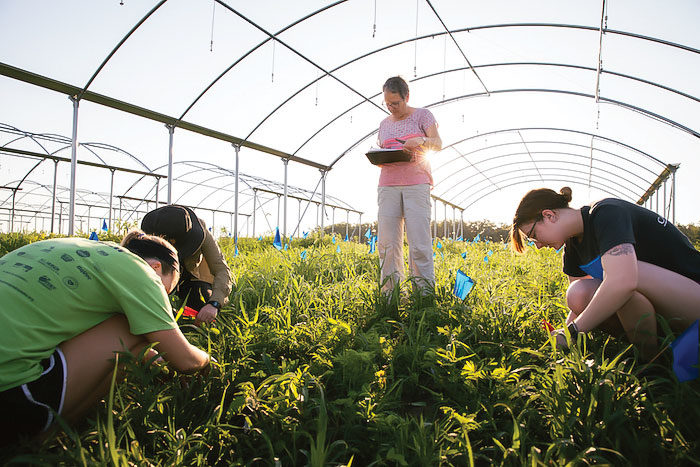No-Till Farmer
Get full access NOW to the most comprehensive, powerful and easy-to-use online resource for no-tillage practices. Just one good idea will pay for your subscription hundreds of times over.

POLYCULTURE PLOTS. Peggy Schultz, associate specialist at the University of Kansas, collects data on plots with undergraduate workers. The polyculture study says rotating crops keeps pathogen populations in the soil under control. KU Marketing
Moving away from monocrops to more diversity in the field can help fight soil-borne pathogens. A recent University of Kansas (KU) study shows the more species present, the fewer harmful microbes are active in the root zone. The research adds some empirical evidence to the wisdom of crop rotations
“It’s commonly observed that diverse plant communities can be more productive and stable over time,” says Jim Bever, KU distinguished professor and lead scientist on the project.
While crop rotation and other farming and gardening practices have long reflected benefits of a mix of plants, the new research with polycultures points to an important mechanism supporting the observations — the population figures for microbes in the soil that attack plants.
Bever’s study concentrated on rangeland plants. He says while increases in productivity have been recorded in rangeland plants, the reason for the increase had been a bit of a mystery.
“In monocultures, pathogens accumulate that consume or attack the plant, and the net effect is negative,” Bever says. “This is because the crop is dealing with the pathogens that accumulate on its own roots as well as getting pathogens from neighboring plants. In polycultures, the neighboring plant is a different species and likely to be immune to the pathogens from its neighbor, while still benefiting from beneficial microbes present, providing a net positive effect on plant health.”
“Crops from different plant families are less likely to share the same pathogens…”
Bever says the 6-year KU research in field plots…